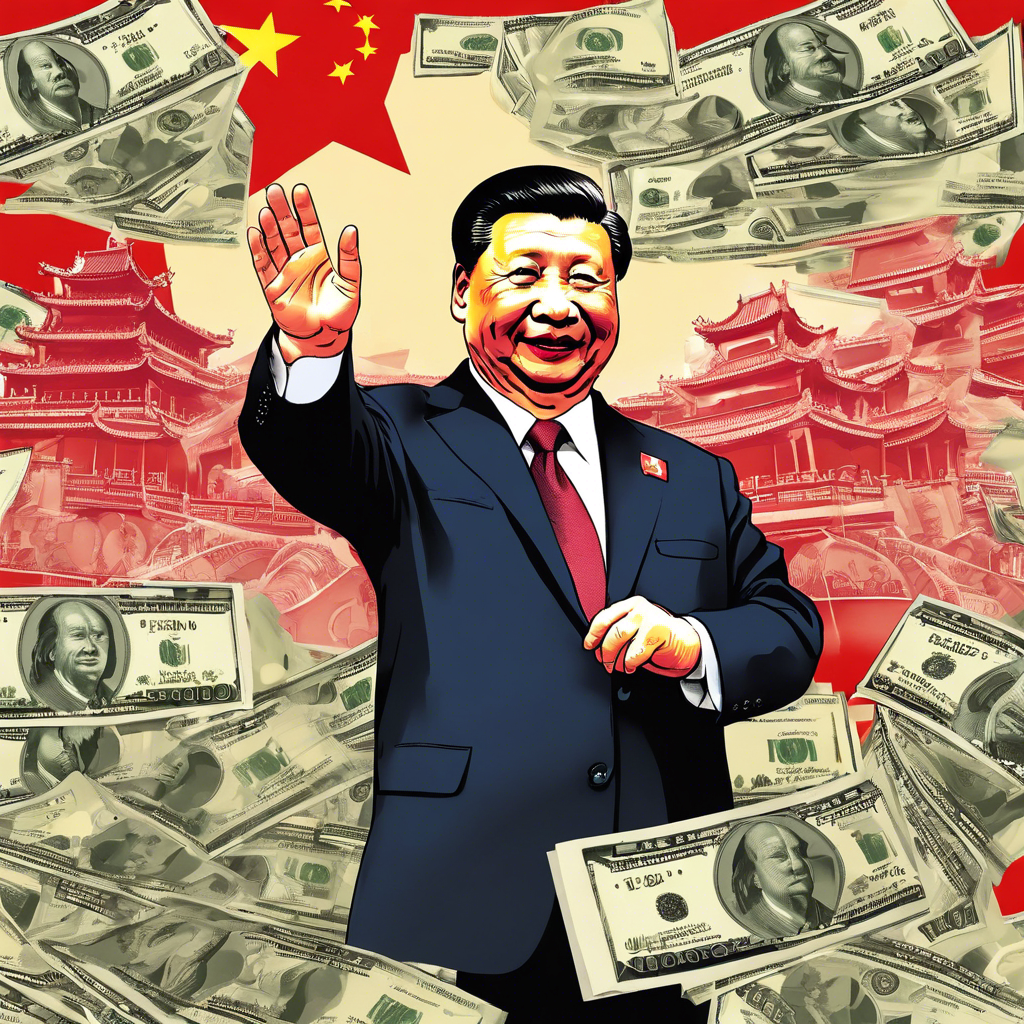Xi Jinping Strengthens Control Over China’s Financial System

Communist Party’s Ideological Statement Signals Tighter Oversight and Government Control
In a move that solidifies President Xi Jinping’s authority over China’s economy, the Communist Party has issued an ideological statement emphasizing the need for financial organizations to adhere to Marxist principles and obey Mr. Xi’s directives. This development has raised concerns among economists and bankers, as it suggests a more forceful extension of control over China’s financial system. While Beijing aims to present an open economy to attract investment, the Qiushi paper’s directives indicate a shift towards tighter oversight and increased government influence over the finance sector.
The Party’s Expectations for Financial Organizations
The Communist Party’s ideological statement, published in the Qiushi journal, leaves no room for ambiguity. It explicitly outlines the Party’s expectations for banks, pension funds, insurers, and other financial organizations to follow Marxist principles and demonstrate loyalty to President Xi Jinping. This directive places an unprecedented level of control in the hands of the Party, signaling a departure from the previous emphasis on market-oriented reforms.
Implications for China’s Economy
The Qiushi paper’s directives have significant implications for China’s economy. By exerting greater control over the financial sector, President Xi aims to ensure that it serves the government’s policies more actively. This move aligns with his broader vision of a “socialist market economy,” where the state plays a central role in guiding economic development. However, this increased control may hinder efforts to portray China as an open economy, potentially deterring foreign investment.
Tighter Oversight and Increased Government Influence
Economist Barry Naughton, who has extensively studied China’s transition to a market economy, suggests that the Qiushi paper signifies a shift towards tighter oversight and increased government influence over the finance sector. This assertion is supported by the Party’s desire to align financial institutions with Marxist principles, indicating a departure from the principles of a free-market economy. The document implies that financial organizations will face more stringent regulations and closer scrutiny to ensure their compliance with government policies.
Balancing Control and Economic Growth
While President Xi’s consolidation of power over the financial system may raise concerns about China’s commitment to a market-oriented economy, it is essential to consider the delicate balance between control and economic growth. China has achieved remarkable economic progress over the past few decades, largely due to its ability to adapt and implement reforms. It remains to be seen how the increased government control will impact the country’s economic trajectory and its ability to attract foreign investment.
Potential Challenges and Risks
The tightening of control over China’s financial system carries inherent challenges and risks. Striking the right balance between government control and market forces is crucial to maintain investor confidence and sustain economic growth. Excessive government intervention may stifle innovation and impede the efficiency of financial institutions. Furthermore, it may discourage foreign investors who value transparency and a level playing field.
Conclusion:
President Xi Jinping’s latest move to extend his control over China’s financial system through the Communist Party’s ideological statement has significant implications for the country’s economy. The Qiushi paper’s directives highlight a departure from market-oriented reforms, signaling a shift towards tighter oversight and increased government influence. While this move may raise concerns about China’s commitment to an open economy, it is crucial to consider the delicate balance between control and economic growth. The future impact of this increased control on China’s economic trajectory and its ability to attract foreign investment remains uncertain. As China navigates this new phase of its financial system, it must carefully manage the challenges and risks associated with heightened government control.

